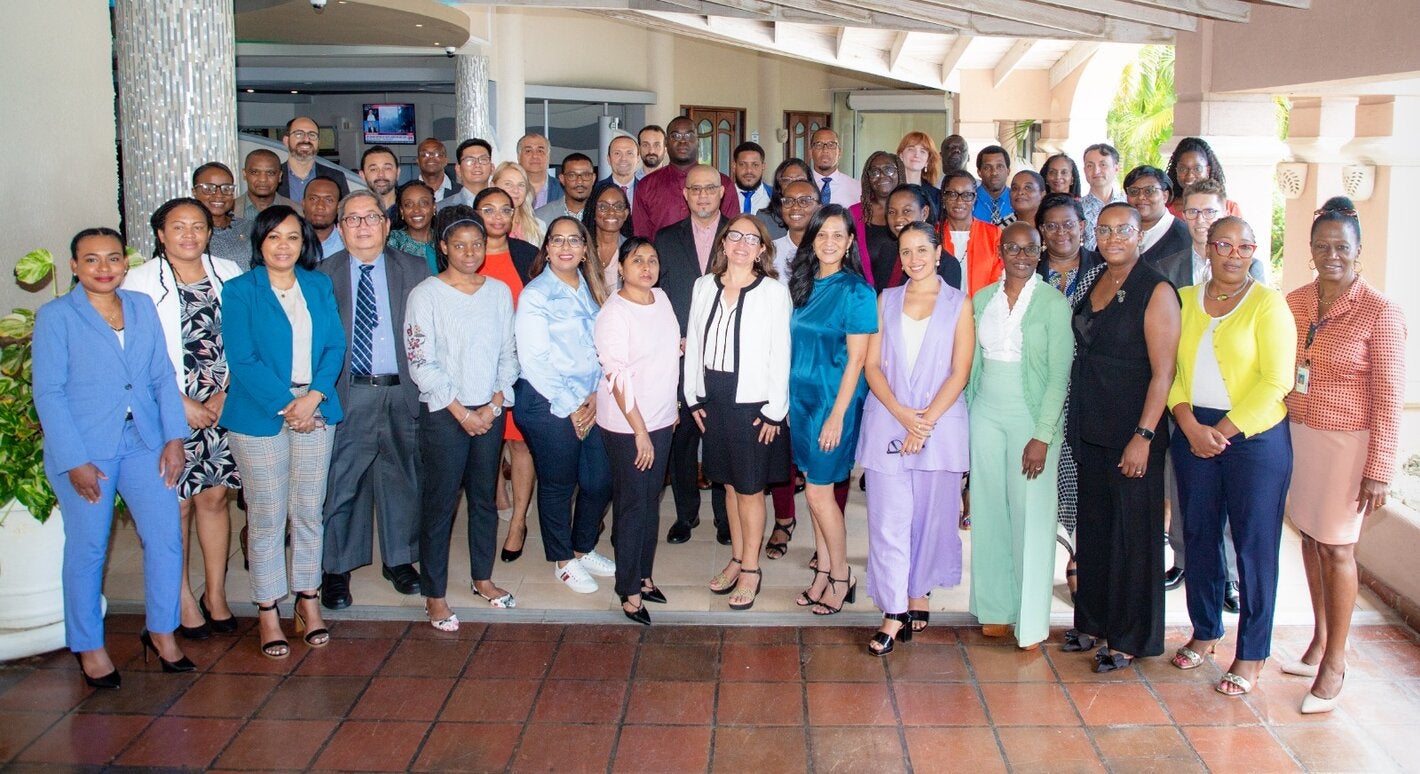
Bridgetown, Barbados, 2 November 2023 (PAHO/WH0) - Over 60 delegates from 10 CARICOM Member States, as well as representatives from global and regional partner organisations, have convened in Barbados from 30 October - 3 November to highlight the potential of legal and taxation policies as effective tools in the prevention and control of NCDs.
Two joint events, Non-Communicable Diseases (NCDs) and Law with the Caribbean Public Health Law Forum (30-31 October) and the Caribbean Workshop on Health Taxes (1-3 November) were organised by the Pan American Health Organisation (PAHO-WHO). These collaborative meetings aim to serve as a pivotal platform uniting NCD focal points, public health practitioners, legal experts, economists, and policy advisors who are actively engaged in the development, implementation, and evaluation of legal and regulatory frameworks, as well as health taxation strategies. These events promise to be a critical juncture for sharing insights and fostering cooperation in the ongoing battle against NCDs in the Caribbean region.
During his opening remarks at the Meeting on NCDs and Law, Mr. Dean Chambliss, Director of the PAHO/WHO Caribbean Subregional Program, stated: “Today, having passed the challenging years of the COVID pandemic, the moment is ripe for again coming together to advance more solidly on policy development in Law and NCDs. Through individual and institutional collaboration among those working in health and legal affairs, we can build on notable recent successes in the Caribbean, sharing best practices and legislative models that have proven successful.”
Honorable Mr Justice Winston Anderson, Judge of the Caribbean Court of Justice (CCJ) and Chair of the CCJ Academy for Law stated that there is a modest but important and growing body of substantive Caribbean law on NCDs and their risk factors. “An increasing number of Caribbean Constitutions provide that the State has the obligation to guarantee the right to life, health, and respect for the human person. This is most clearly stated in Haiti. But the Constitutions in other Caribbean jurisdictions, including Guyana and Jamaica, present a constitutional guarantee of a right to an environment, ‘that is not harmful to health or wellbeing’,” Justice Anderson pointed out.
The Caribbean workshop on health taxes will provide countries with the necessary technical tools, evidence, and knowledge to advance health taxation policy across the region. Delegates in the fields of health, law, academia and civil society will also subsequently collaborate to advance the Caribbean’s public health goals and the promotion of the human right to health, through capacity building and contribution to the development of policies and legislation to tackle NCDs in the Caribbean. This initiative will also provide countries with the necessary technical tools, evidence, and knowledge to advance health taxation policies across the region.
This event was conducted in collaboration with the Caribbean Public Health Law Forum. The Forum was launched in June 2021 as a joint initiative between PAHO-WHO and Caribbean Court of Justice Academy for Law (CAFL). The Forum promotes increased awareness on the role of law to prevent and control NCDs, disseminates best practices in health legislation in the Caribbean, and helps develop capacity within the region to leverage advocacy for public health.



